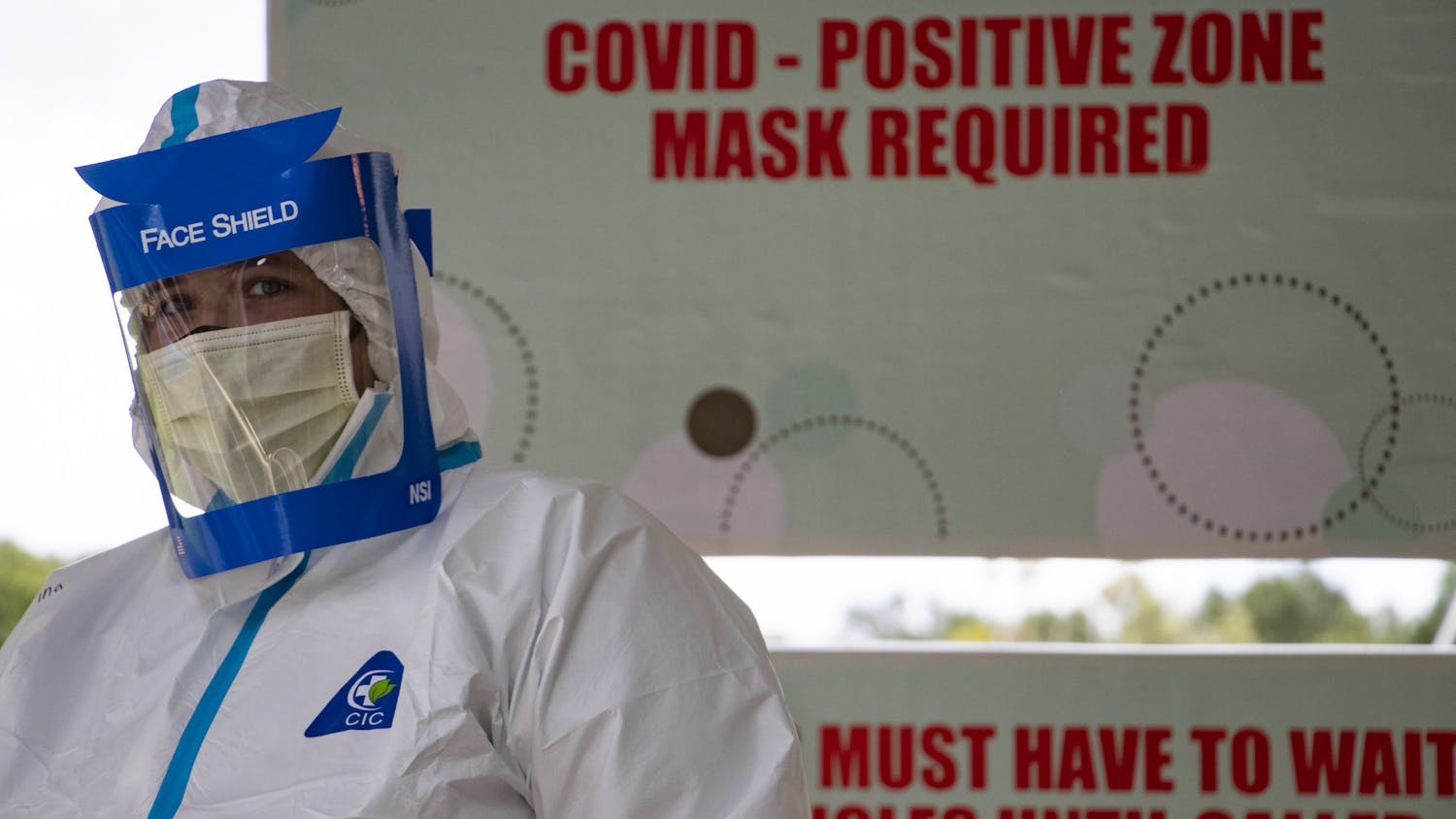Students who think they have the flu might just have allergies.
Allergies are often confused with flu symptoms, said Cecilia Luna, the marketing and communications coordinator for the UF Student Health Care Center.
UF’s special clinic, which injects flu and allergy shots, received 8,623 visits in 2016 to 2017, Luna said.
Ragweed, which triggers fall allergies or hay fever, is the most common type of allergen in the U.S. and reaches its peak pollination in August, September and October, said Samantha Langston, a medical assistant at Florida Medical and Allergy Centers.
With the combination of the allergen and wind during fall in Gainesville, there are more cases of students with symptoms of allergies during this time of year.
“Allergies usually hit you in the morning when you first wake up,” Langston said. “That’s really the first sign.”
Langston said the Florida Medical and Allergy Centers in Gainesville has about 100 patients. Around 90 percent of those patients schedule appointments specifically for allergies.
Florida Medical and Allergy Centers encounter more appointments when it rains less during allergy seasons. The rain helps to flush out the pollen in the air, Langston said.
The environment in Gainesville amplifies the effects of allergies, Langston said. She described Gainesville as a dome, where there is no coastal breeze to help filter out traveling pollen.
Itchy skin, fatigue, congestion and postnasal drip are some allergy symptoms that could distinguish it from the flu, Langston said. Flu symptoms are more severe and include fever, more fatigue and less appetite.
Over-the-counter allergy medication, increasing water intake, keeping a humidifier running and using a nasal flush in the shower could help with allergies, Langston said.
During the fall, Katie Sanford, a 20-year-old UF psychology and English junior, said she doubles up on Zyrtec, an allergy medication, or her symptoms, such as a cough or itchy hands, will linger.
“I will be at the front of the class with the professor lecturing and I will have to be blowing my nose constantly,” Sanford said. “It’s kind of awkward from time to time.”
Langston said the consumption of certain foods and drinks such as bananas, chamomile tea and zucchini can be linked to pollens that may trigger allergies.
Langston said students should seek help when symptoms do not go away with medication and begin to affect their lifestyles. If nothing works, Langston recommended seeking immunotherapy, which injects allergens into the body to produce blocking antibodies through repeated exposure.
Students can visit the Allergy Injection Clinic, at 280 Fletcher Dr. to seek immunotherapy therapy treatments, Luna said.
“We are not masking another symptom,” Langston said. “We are curing your allergy.”






